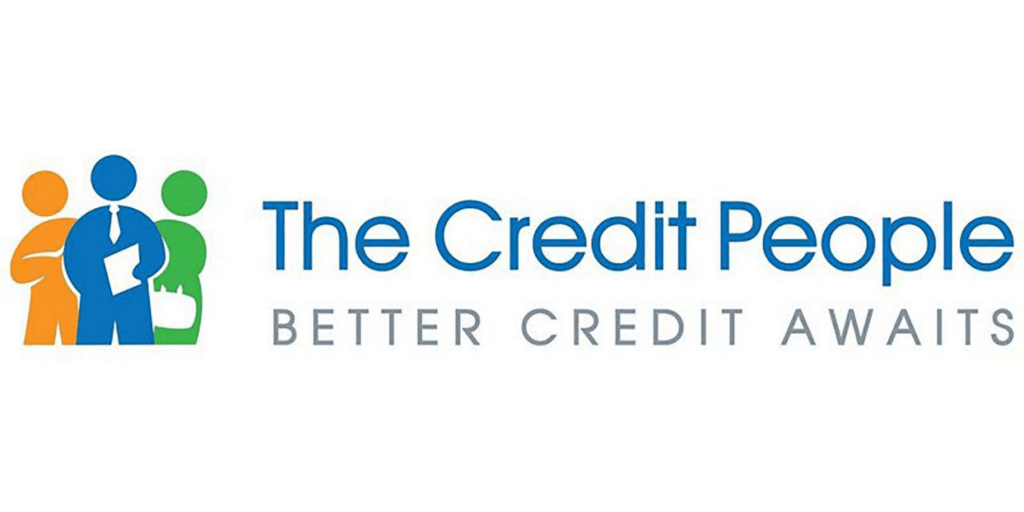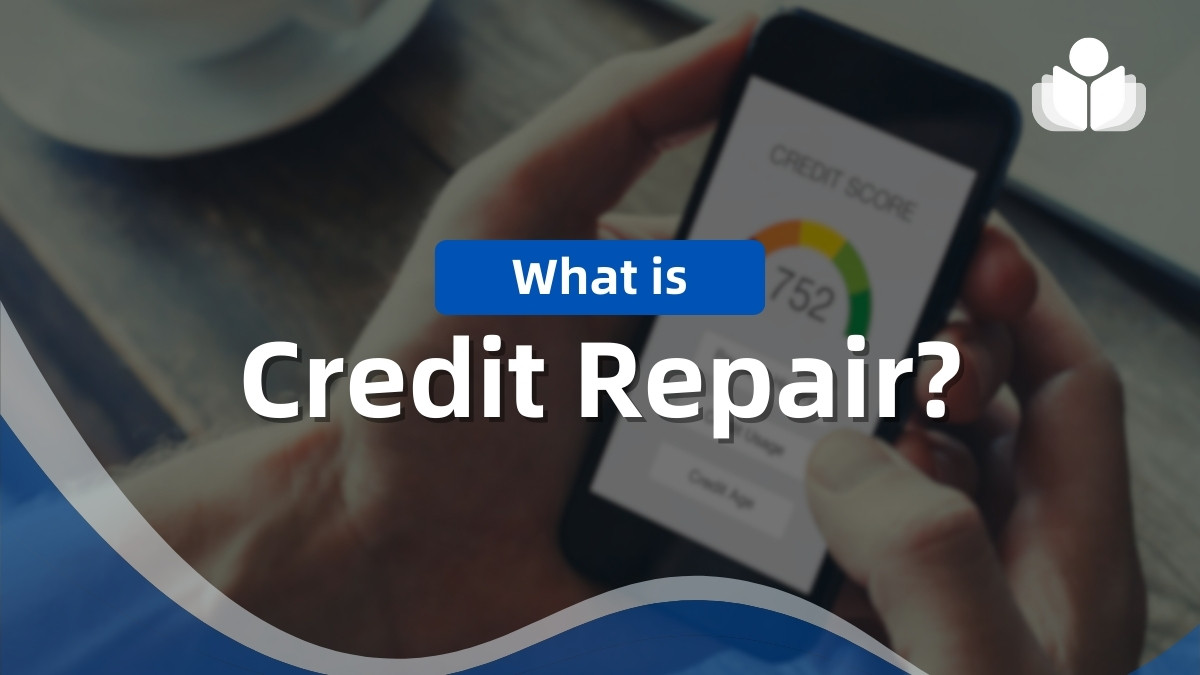Improving your credit score can have numerous benefits, such as improving your chances of getting approved for a mortgage or obtaining better rates on car insurance. However, individuals with less-than-ideal credit may find it challenging to achieve better credit.
Fortunately, there’s good news repairing your credit is possible, although it does require time and effort. We have prepared a comprehensive guide that will provide you with all the information you need to know about repairing your credit.
What Is Credit Repair?

Credit repair involves the rectification of a credit history or status that may have declined due to various reasons. Fixing credit standing can be as easy as challenging inaccurate data with credit agencies, including cases of identity theft.
However, some situations might necessitate more extensive efforts in repairing one’s credit. Additionally, credit repair may require addressing underlying financial matters like budgeting and responding to valid concerns raised by lenders.
Key Takeaways
- Credit repair entails the process of rectifying or improving a low credit score
- Credit repair may also encompass hiring a company to communicate with credit bureaus, identifying and disputing any inaccuracies or falsehoods in your credit report, and requesting their removal
- While it’s possible to undertake credit repair independently, it often requires significant effort and time
How Credit Repair Works?
Numerous companies assert their ability to rectify flawed credit reports, but rectifying any false or misleading information on these reports requires both time and effort. It’s important to note that third parties cannot remove the specific details cited by credit reporting agencies. However, if these details are misrepresented or inaccurate, disputes can be raised.
While credit repair companies may investigate such information, individuals themselves have the right to scrutinize their own reports. Every 12 months, individuals are entitled to receive free copies of their credit reports from the relevant agencies. Additionally, they can request a report when faced with adverse actions like being denied credit based on report information.
When incomplete or erroneous data appears on their credit reports, consumers have the option to file disputes. In addition to addressing incorrect information and detecting fraudulent transactions associated with one’s credit history, rebuilding and repairing one’s credit often hinges heavily upon responsible usage and activity.
Several factors play a significant role in determining an individual’s overall credit score:
- Payment History: Timely payments and optimizing the payment schedule for existing credit can positively impact credit scores.
- Utilization of Available Credit: The amount of debt relative to available credit can adversely impact credit scores, even if minimum payments are met. This imbalance may strain liquidity. By reducing overall debt, individuals may observe enhancements in their credit standing.
Credit Repair Services
Managing credit repair can often feel overwhelming, even when we give it our all. That’s where our dedicated Credit Repair Services step in to lend a helping hand. These companies take on the task for you and provide assistance along the way.
While numerous credit repair companies promise their help, not all of them can be relied upon. The following are a few of the most reputable and dependable credit repair services available for your benefit.

With a solid 17-year track record, Credit Saint has established itself as a respected player in the industry. New customers are provided with a complimentary consultation, and if they decide to proceed with one of Credit Saint’s packages, the company takes care of all communication with the credit bureaus. Clients have three package options available, starting at $79.99 monthly and an initial setup fee of $99.

In contrast to certain rivals who provide unclear timeframes for customer outcomes, The Credit People takes prompt action and assures that some clients will experience improvements within a mere 60 days.
Additionally, they promptly supply you with your credit scores and reports upon enrollment, allowing you to comprehend your credit status from the outset. This initial information serves as a benchmark for monitoring your progress as time goes on.

For more than three decades, Sky Blue has been providing credit repair services. The company follows a credit repair process that is similar to what other repair companies use.
Once you fill out the sign-up form, the company will carefully examine your credit report, identifying any questionable items. During this stage, Sky Blue Credit will also offer personalized and practical advice to assist you in rebuilding your credit.
Afterward, the company will challenge inaccurate items with the three major credit bureaus. In case these bureaus reject the disputes made by Sky Blue Credit, repeat dispute letters will be automatically sent to increase your chances of achieving a higher score.
Is Credit Repair Illegal?
Credit repair is a legitimate method of enhancing a tarnished credit history and increasing your credit score. While it’s possible to enlist the assistance of a professional company in repairing your credit, they cannot achieve anything that you’re unable to accomplish on your own.
How Long Does It Take to Repair Credit?
Fixing your credit is a complex task. Negative yet factual information, such as late payments, charge-offs, or accounts in collections, stays on your credit report for a period of seven to ten years.
How Is Your Credit Score Calculated?
FICO® credit scoring systems allocate a numerical value to individuals or companies, aiding financial institutions in assessing the likelihood of borrowers repaying their debts and determining the amount of additional debt they can manage.
These scores are determined by various factors that indicate the history of timely debt repayment, current debt repayment ability, and capacity to handle additional debt. Key elements considered when calculating consumer credit scores include:
- Payment history: What is your track record of timely bill payments, and do you have any instances of past-due payments, debt collections, bankruptcy filings, or property foreclosures?
- Credit utilization: What is the ratio of your outstanding account balances to your credit limits?
- Credit age: How long have your credit accounts been open?
- Credit mix: Have you demonstrated proficiency in managing debt across different credit types, such as credit cards, student loans, auto loans, and mortgage loans?
- Credit inquiries: How frequently have you recently applied for new credit accounts?
Payment history and credit utilization are the two most significant factors that influence your credit score. In the widely used FICO credit scoring system, payment history makes up 35% of your score, while credit utilization accounts for 30%. Credit age contributes 15%, whereas credit mix and credit inquiries make up 10% each.
It’s important to note that your credit report provides a detailed breakdown of other aspects of your financial history. This includes information such as a list of your revolving and installment accounts, recent hard and soft inquiries on your credit, as well as a record of collection actions and bankruptcies. These additional details, along with your credit score, help financial institutions gain a comprehensive understanding of your overall creditworthiness.
For further insights on comprehending your own personal credit score analysis guide, please refer to our informative Credit Score Guide.
What Hurts Your Credit Score?
Improper management of the factors used in calculating your credit score can have a negative impact on your score. Certain key factors have the potential to lower your credit score if not handled correctly.
- Late payments: Given the significant weight placed on payment history by FICO’s scoring system, tardy payments can substantially reduce your credit score. Even a single payment delayed by more than 30 days can impact your score negatively. More severe late payment issues, such as collections, bankruptcies, and foreclosures, can have a considerable detrimental effect on your score. It’s essential to prioritize avoiding late payments.
- Excessive credit utilization: Maintaining a high balance on your credit cards can raise concerns among financial providers about your liquidity or your ability to manage additional debt. Credit utilization exceeding 30% of your balance is deemed high, while a utilization rate of 10% or lower is considered ideal.
- Short credit history: Financial providers may view accounts with a limited history as needing more proven credit management capabilities. Maintaining accounts open for at least 7 years can help establish a more robust credit history.
- Limited credit diversity: Handling only one type of debt, such as a credit card or a student loan, may lead lenders to question your ability to manage different forms of debt, such as mortgages. Diversifying the types of credit you use and ensuring timely payments can enhance your credit score.
- Excessive new credit applications: Applying for multiple credit cards or loans within a short timeframe may suggest to lenders that you’re in urgent need of funds, potentially raising concerns about your risk profile due to increased activity. Hard credit inquiries remain on your credit report for two years, so it’s important to consider this before making multiple credit applications.
Avoiding these pitfalls is crucial for maintaining a healthy credit score. By adhering to the aforementioned guidelines and steering clear of these problems, you can reduce the likelihood of requiring credit repair services.
What Does Credit Repair Include?
Credit repair refers to the process of rectifying or improving a low credit score. It can involve hiring a company to communicate with credit bureaus and highlight any inaccuracies or falsehoods in your credit report, subsequently requesting their removal.
Another approach to credit repair is addressing underlying financial problems, such as budgeting, and proactively resolving lenders’ valid concerns.
What to Know Before Hiring a Credit Repair Company?
Although the idea of outsourcing your credit problems to a third-party company may seem appealing, it’s crucial to manage your expectations. While credit repair companies can definitely assist in gradually enhancing your credit score, they have certain constraints.
Credit Repair Companies Can’t Do Anything You Can’t Do Yourself
Credit repair agencies can assist in enhancing your credit score by collaborating with your creditors and credit bureaus to eliminate negative information. However, you have the option to undertake these actions independently without incurring any costs for credit repair services.
Moreover, it’s possible to personally contact your lenders and engage in negotiations without the need for a credit repair firm. In fact, some lenders may not permit third-party representation when negotiating on behalf of their customers.
Accurate Information Can’t Be Removed From Your Credit Report
Credit repair companies put in significant effort to eliminate any inaccurate data from your credit report. However, it’s important to note that they do not possess the ability to remove negative yet accurate information from your report. Furthermore, these companies cannot make guarantees about removing information from your reports.
Credit Repair Companies May Not Offer Budgeting or Money Management Advice
While credit repair agencies have the goal of assisting individuals in getting out of debt and improving their credit, they provide a different array of services than credit counseling agencies.
Credit counseling agencies adopt a more comprehensive approach to resolving financial and credit-related issues. They primarily focus on helping individuals create a budget, enhance money management skills, and reduce expenses.
Conversely, credit counseling services take different measures than credit repair agencies to enhance one’s credit score or rectify negative marks on their credit report. It’s beneficial to familiarize oneself with both options before making a decision between the two services.
You Can Cancel Your Contract Within Three Days Without Penalty
According to the Federal Trade Commission (FTC), if you regret buying services from a credit repair company, you have the option to cancel your contract within three days without incurring any charges or fines.
It Will Take Time for Your Credit to Improve
Improving your credit is a challenging solution, whether you choose to do it on your own or hire a credit repair company.
The credit bureaus are allowed 30 days to conduct an investigation into any errors and five business days to inform you of the investigation’s findings. Sometimes, this process can take even longer.
For example, if you recently obtained a new copy of your credit report and filed a dispute, the credit bureaus have 45 days to investigate the matter. It’s crucial to remain patient and persistent throughout this process.
How Do You Choose the Best Credit Repair Company?
If you lack the time to improve your credit personally and have the financial means to hire a credit repair agency, there are important factors to evaluate prior to committing to an expensive agreement.
Research Any Regulatory Action
If a credit repair company has a track record of disregarding federal laws, you should exercise caution when considering engaging in business with them.
Given that regulatory measures and legal actions are matters of public record, you can access this information on government websites such as the FTC and the CFPB. Interestingly enough, the CFPB also maintains a database dedicated to complaints where you can look up specific companies.
Check for Credit Repair Organizations Act violations
In order to adhere to the Credit Repair Organizations Act, every credit repair company must follow certain guidelines. Therefore, it’s essential that you verify whether the credit repair companies you’re considering comply with these regulations.
- Cannot provide inaccurate information
- Cannot demand upfront payment
- Must furnish contracts in written form
- Must afford consumers the option to cancel their contract
If you come across any possible compliance concerns, avoid engaging with that particular company.
Compare Plans for Features and Fees
When it comes to credit repair companies, just like obtaining a personal loan or credit card, it’s crucial to do your due diligence and compare pricing and fees. Typically, these companies offer different plans with varying perks and advantages. As part of their services, they usually impose an initial setup fee along with a monthly fee for the duration of the process.
However, you can actually repair your credit, communicate with creditors, and contest inaccuracies on your own without any cost. This means you have the option to handle these tasks independently if you prefer.
How Do You Repair Your Credit Yourself?
You have the ability to repair your credit on your own without spending any additional money or hiring a company. As stated in the Fair Credit Reporting Act (FCRA), you’re legally allowed to dispute any errors found on your credit report. The credit bureaus are required to investigate these disputes within 30 days, and sometimes 45 days.
Instead of relying on a credit repair company to obtain your credit reports, you can access them for free online from all three agencies at AnnualCreditReport.com. It’s important to review reports from Equifax, Experian, and TransUnion as they may contain different information.
If you discover any inaccuracies, you can challenge them through various methods such as online submission or contacting the specific credit bureau.
There are additional steps you can take independently to improve your credit score. This includes paying off overdue debts, ensuring that all payments are made on time, and reducing your utilization by decreasing the amount of money owed.
By following these guidelines and taking proactive measures towards improving your own financial standing, it’s possible to successfully repair your own credit without incurring unnecessary expenses or relying on outside assistance.
What is Credit Repair? – Frequently Asked Questions
The Bottom Line
Credit restoration is the process of rectifying or amending a low credit rating. It may also entail enlisting the services of a company to communicate with the credit bureau, identifying any inaccuracies or falsehoods in your report, and requesting their removal.
The choice between undertaking your own credit repair or employing a firm rests with you. Remember that credit repair agencies are permitted to offer assistance only what you can accomplish independently. Nevertheless, rectifying your own credit can take time and effort.
 Sections of this topic
Sections of this topic
















